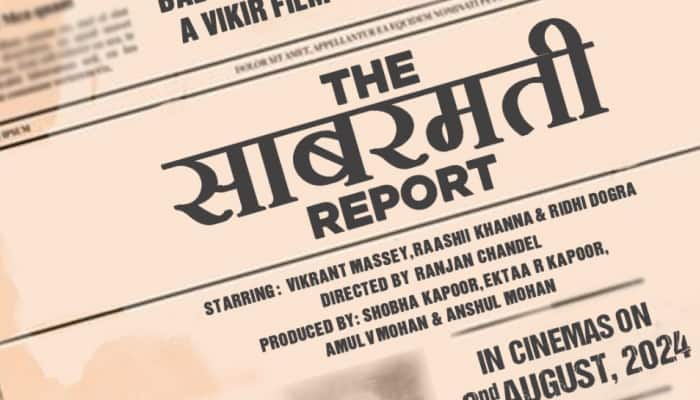Remembering Bhupen Hazarika
His voice had a rustic touch and his singing had a magical power that could cure millions of hearts of its sorrow.
Trending Photos
)
Gayatri Sankar
His voice had a rustic touch and his singing had a magical power that could cure millions of hearts of its sorrows. The famous son of Assam, Padma Bhushan Bhupen Hazarika certainly breathed his last on Saturday, 05th November, but will continue to live in the hearts of millions of music lovers through his musical legacy.
Hazarika was born on September 08th, 1926, in Sadiya, Assam. A highly qualified personality, Hazarika studied at Cotton College and then moved to the Banaras Hindu University to complete his Bachelor in Arts in 1944. He completed his MA in Political Science and was honoured with a doctorate by the Columbia University in New York in the 1952. He also received the Lisle Fellowship from Chicago University, US to study the use of educational project development through cinema.
At the age of 12, Hazarika sang his first song ‘Biswa Bijoy No Jowan’ for an Assamese film ‘Indramalati’. Music was his passion and music made his life.
Hazarika held an iconic stature in West Bengal, Assam and the neighbouring country of Bangaldesh.
His voice could awaken tired souls out of eternal slumber. He is also known for his poetic compositions that covered a variety of subjects ranging from politics to society and from love to eroticism.
His involvement with the Assamese film industry dates back to the industries’ inception. His soulful compositions for Hindi films `Rudali`, `Chingaari`, `Daman: A Victim of Marital Violence` gave a new dimension to Bollywood music. His song `Dil Hoom Hoom Kare` is a legend.
Listening to his songs in a dimply lit room could help one detoxify his mind and body. Such is the power of his music. The Brahmaputra and the Ganges too will certainly miss the veteran artist who immotralised these divine water bodies through his compositions.
He was awarded the National Award in 1975 for for `Chameli Memsaab`. He also won the Dada Saheb Phalke Award in 1992. The legendary composer was conferred the Indian Music Director award for best music Internationally for the film `Rudaali` at the Asia Pacific International Film Festival 1993 held in Japan.
Hazarika was a multi-talented personality. He was a poet, music composer, singer, actor, journalist, author and filmmaker. He was a self- proclaimed wanderer who brought tradition of Assamese music to a platform where the world could listen.
Hazarika took inspiration from legendary black singer Pual Robenson to compose his magnum opus `O Ganga behti ho kyon`.
Hazarika had once spoken about his love for tribal music. "As a child, I grew up listening to tribal music - its rhythm saw me developing an inclination towards singing. Perhaps, I inherited my singing skills from my mother, who sang lullabies to me. In fact, I have used one of my mother's lullabies in Rudali," a daily once quoted him.
Though Hazarika held cult status in the northeastern states of India, he was also very popular among the intellectual class across India. He wrote over 1000 lyrics and covered a wide range of topics that included short stories, essays, travelogues, poems and children's rhymes.`
`Era Batar Sur`, `Shakuntala`, `Loti ghoti`, `Pratidhwani`, `Chick Mick Bijul`, `Swikarokti` and Siraj` are some of the Assamese films that were directed by him. He lent his voice and composed songs for the film.
Master painter MF Husain, who had teamed up with Hazarika for `Gaja Gamini` had told the composer , “You paint through your songs. But I can't sing with my paintbrush. It's up to you to fill this lacuna in my artistry. That's why I've taken you.”
Hazarika featured in his first music video -'Our Northeast, Our Star' with Shantanu Moitra and Swanand Kirkire. The veretan also sang Mahatma Gandhi’s favourite bhajan `Vaishnav Jan To` for the film `Gandhi To Hitler`.
He had moved to Mumbai to work as an artist with Indian People's Theatre Movement (IPTA) with music composer Salil Chowdhury, actor Balraj Sahni and a few other intellectuals.
Talking about his love for the city of Mumbai, Hazarika had once said, “The generous city and its people have welcomed me, accepted me, and given me my second home since so many years. I admire its people for its willingness to allow people from the rest of India to earn a living and prosper, irrespective of caste, creed or colour.”
He won President's medal for his films `Shakuntala` (1960), Pratidhwani (1964) and Lotighoti (1967). He was chosen as a member of the Assam Legislative Assembly from 1967-72 . He was also awarded the Sangeet Natak Akademi Award in 1987. He was the chairman of the Sangeet Natak Akademi from 1999-2004.
Hazarika’s death has left a vacuum that can perhaps be never filled. He bid goodbye to the world, by music lovers shall never let him go off their hearts for he is immortal.
(With PTI inputs)
Stay informed on all the latest news, real-time breaking news updates, and follow all the important headlines in india news and world News on Zee News.
Advertisement
Live Tv
Advertisement







)
)
)
)
)
)
)
)
)
)
